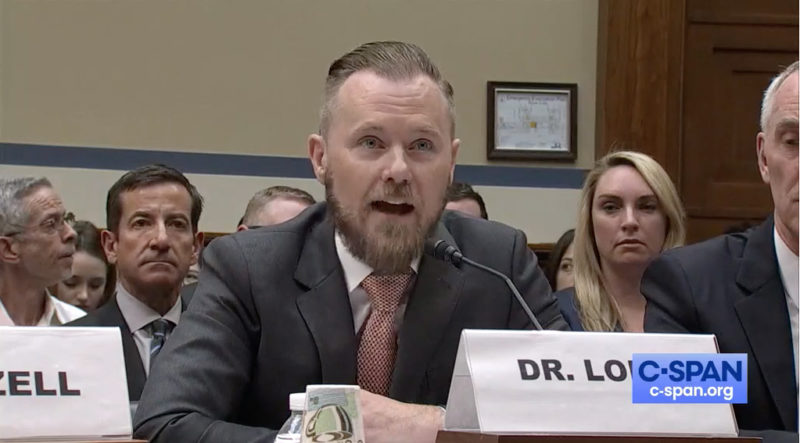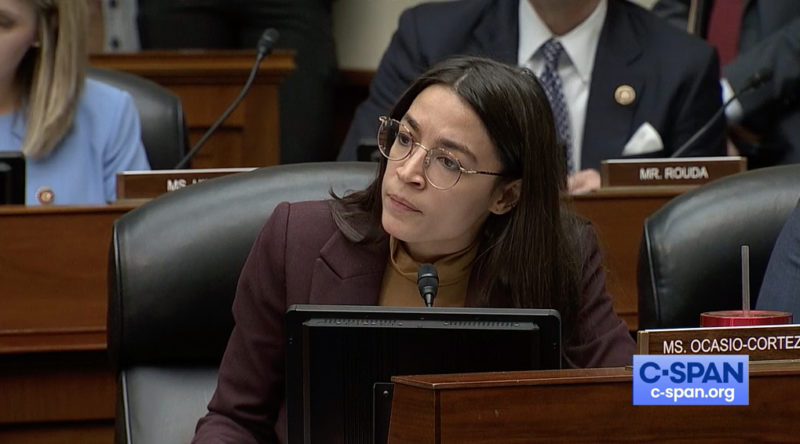The USA is being charged $70 per pill for a drug, yet tax payers largely funded the research. Thanks to PrEP4All and other activists and politicians supporting the #breakthepatent movement, a hearing put Daniel O’Day, Gilead’s Chief Executive, in the congressional hot seat to be questioned about the “astronomical” pricing.
Here we present a flavour of the debate from the hearing, which exposes the huge flaws in Gilead’s corporate decisions, and links to more stories from around the web.
A congressional hearing questioned the price of Truvada for PrEP in the US. “A phenomenal drug that prevents the transmission of HIV,” as described by Representative Elijah Cummings, Chair of the hearing.
“We now have a drug that has the potential to end the HIV epidemic. This would have been unfathomable at the height of the HIV/AIDS crisis,” said Cummings. “The problem is that Gilead, the company that sells this drug, charges astronomical prices.”
He described how Gilead has raised the price of the drug, “over and over and over and over and over again”, despite having made $36 billion worldwide on this one drug alone, for what the company claims was an investment of $1.1 billion.
“How can our system allow this?” asked Cummings.
“1.1 million people [in the US] are at high risk of contracting HIV who could benefit from this drug, but only a fraction are getting it.” Cummings describes the pricing as an “abuse” of a monopoly.
He ended his opening statement statement urging O’Day, “[not to] give us the normal rope-a-dope stuff that we usually hear… [instead] we want the prices to come down, we want truth.”
Witnesses to the hearing included physicians, researchers, and other experts. Sitting next to O’Day was Dr. Aaron Lord, physician and PrEP activist.
Lord said he has taken PrEP since 2012 and “no longer has to live in fear”.
“Despite PrEP’s remarkable efficacy the number of new HIV infections in the US remains the same today as when PrEP was approved in 2012,” Lord stated. He explained how there is a new HIV infection every 15 minutes in the US, yet in Australia, where PrEP costs $8, new infections have been reduced effectively. “The root cause of the problem is price.”
“HIV activists will not stand by”
Lord addressed O’Day directly: “Mr O’Day, we are suffocating under the weight of your company’s pricing. Mr. O’Day, for a figure far less than $2.6 billion, which is what we spend on your egregiously over-priced medication every year, we could have a national, far-reaching PrEP programme, which means every person that needs PrEP could get it… Mr. O’Day, you have given the American people a very bad deal for our money.”
The total funding needed to get the HIV response back on track has been estimated at $26 billion annually, $10 billion less than what Gilead has made in sales on Truvada alone since 2004.
As Lord explains: “The American people funded the innovation of the molecule; invented its use as PrEP; and funded four clinical trials to prove its efficacy.”
During questioning by representatives, O’Day referred repeatedly to donations and access programs. At one point saying: “If there is a patient out there who cannot access Truvada on the basis of financial means, our programmes are designed to capture them.”
The treatment gap, with pricing an overwhelming cause, demonstrates that these ‘charitable’ schemes, (while the company simultaneously brings in billions of revenue), do not achieve its claimed goal. We echo Lord in urging Gilead, to create fair, sustainable pricing, so everyone who needs the drug can access it: “Mr. O’Day, we do not ask for your company’s charity or for tax-deductible donations that meet your company’s needs but fail to meet the needs of our communities. Rather we ask Mr. O’Day, why not lower the price of Truvada to $15 per month, right here, today, at this hearing?”
Watch Dr. Aaron Lord’s opening statement in full.

Money talks
“I have no problem with you making a profit. I want you to make a profit, because I’ve seen what research can do… but there’s nothing like holding the hand of someone who is dying from AIDS… All we are trying to is represent our constituents, and help them stay alive,” said Cummings.
The issue is fair pricing and profit. Donations are not sustainable, but as O’Day admitted, are tax deductible for a company. While this practice is ‘legitimate’, it poses questions about Gilead’s motivations to choose this ineffective route over fair pricing. Representative Katie Hill, picked up on this point and other money matters, including:
- Reports of Gilead’s tax avoidance, citing the $10 billion tax dodge on its Hepatitis C drug.
- O’Day’s own hefty compensation package for joining Gilead. “Your initial compensation package was reportedly worth about $30 million including both cash and stock options, so the company agreed to pay you $30m just for taking the job, is that right?” Hill asked. “That’s correct”, replied O’Day, before attempting to justify or downplay the figure.
- Hill then compared the median income for a US worker. At $46,800 this is “1/6th of 1 percent of what your signing bonus was”.
- As a private company, Hill conceded that what Gilead does with its profits is its choice. However, when when you compare Gilead’s “long history of paying windfall amounts to its corporate executives” to the money required to fill the treatment gap, “what Gilead choses to do with its profits matters to all of us.”
The patent has been “privatized”
Representative Alexandria Ocasio-Cortez (AOC) challenged O’Day in an impassioned statement, saying the huge price discrepancy is because the patent has been “privatized” despite being owned by the public. “There is no reason this [drug] should be $2,000 per month – people are dying.”
O’Day did not directly answer questions from other Representatives about National Institutes of Health (NIH) investment, or whether the role of tax payer funding in the development of the drug was taken into account. “It’s complicated”, he said, describing the relationship between public and private partnerships.
Cummings, who started off the hearing saying we wanted the truth, described hearing the “same excuses and justifications”.
Watch AOC challenge O’Day.

Watch the hearing in full.
Activists united against Gilead’s unmerited monopolies
Global partners of the Make Medicines Affordable (MMA) campaign fight unmerited monopolies around the world, and we have a successful track record. MMA launched in 2014, and our original consortium produced annualized cost savings of $472m. We’ve now expanded into over 20 countries.
Typically companies must apply for a patent in each country it registers a drug. Our partner, ABIA, prevented Gilead’s unmerited monopoly on Truvada in Brazil after years of work. Subsequently, the same success was achieved in Argentina. Our partner, Fundación GEP, argued, and proved, that Gilead intended to claim a combination of two known active ingredients that had already been patented and so ‘Truvada’ was not patentable as a combination.
The action of the company, to apply for patents it must know are unjustified, shows it is focused on profits over patients, and the staggeringly high prices Gilead charges when successful demonstrates its “insatiable greed”. MMA’s campaign lead, Othoman Mellouk, criticised Gilead for this at the 2017 International AIDS Conference (IAS), and described how Gilead’s pricing has “wrecked government budgets”.
Civil society has stepped into the key, essential role of challenging intellectual property (IP) abuses, to force fair pricing. Our work is transforming the patent landscape by setting precedents that reduce the price of drugs so access can increase. We won’t stop until everyone can access the life-saving medicines they deserve.
Related news from around the web:
Want to recommend a story to add to the list? Tweet us @affordabledrugs
- Advocate/Politics: AOC Grills Gilead CEO on Truvada Cost: ‘People Are Dying for No Reason’.
- Washington Post: A Leading HIV Drug Is Way Overpriced in the U.S.
- Washington Post: Gilead CEO insists federal government patent for HIV prevention pill Truvada is invalid
- STAT News/Politics: It’s not just Democrats: In dueling drug pricing hearings, at least some Republicans slam pharma, too
- Washington Post: An HIV treatment cost taxpayers millions. The government patented it. But a pharma giant is making billions.
- Make Medicines Affordable: Truvada case shows civil society’s success with pre-grant opposition




